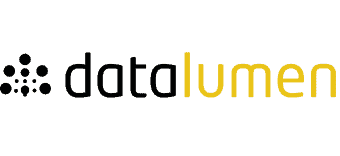MASTER DATA MANAGEMENT AND DATA GOVERNANCE – A TANGO D’AMORE?
In the ever-evolving landscape of data-driven decision-making, organizations are increasingly recognizing the critical interplay between Master Data Management (MDM) and Data Governance. These two pillars, seemingly distinct in their functions, converge to form a symbiotic relationship that is instrumental in driving efficiency, ensuring compliance, and fostering a data-driven culture within enterprises.
MDM – Orchestrating Data Symphony
At its core, Master Data Management is the discipline of managing an organization’s critical data, including master and reference data, to ensure uniformity, accuracy, and consistency across the entire organization. This involves establishing and maintaining a single, authoritative version of the truth for core data entities such as customers, products, assets, and employees. MDM acts as the custodian of data integrity, fostering reliability in decision-making processes and supporting various business functions.
Data Governance – Setting The Stage For Data Harmony
On the other hand, Data Governance is the framework that defines how organizations manage and control their data assets. It involves establishing policies, procedures, and standards to ensure data quality, security, and compliance with regulatory requirements. Data Governance provides the necessary oversight and control mechanisms to safeguard data assets and align them with organizational objectives.
In Unison
The link between MDM and Governance lies in their shared objective of ensuring data accuracy, consistency, and reliability. MDM provides the tools and processes to create a single, trusted source of master data, while Governance defines the rules and policies that guide the creation, usage, and maintenance of this data. Together, they form a formidable alliance that addresses the challenges of data silos, inconsistency, and lack of accountability.
Effective MDM and Governance synergies offer a range of benefits to organizations. Firstly, they enhance data quality by establishing standardized processes for data creation, validation, and maintenance. This, in turn, leads to improved decision-making, as stakeholders can confidently rely on accurate and consistent data. Moreover, compliance with regulatory requirements becomes more manageable, as Governance ensures that data practices align with legal and industry standards. Next to Data Quality, Data Governance typically also embodies a number of other data management capabilities, such as a Business Glossary to properly manage shared business terms and definitions and the associated data governance workflows and processes. Having this properly in place is also fundamental for MDM.
Furthermore, the collaborative efforts of MDM and Governance foster a data-driven culture within organizations. Employees are empowered with reliable data, breaking down silos and encouraging cross-functional collaboration. This not only enhances operational efficiency but also facilitates innovation and agility in responding to market dynamics.
Conclusion
In conclusion, the link between Master Data Management and Governance is not just a technical integration but a strategic alliance that underpins the success of modern enterprises. By aligning MDM and Governance initiatives, organizations can unlock the full potential of their data assets, driving informed decision-making, ensuring compliance, and fostering a culture that values and leverages the power of data. The journey towards data excellence begins with recognizing and nurturing this symbiotic relationship.



